How To Set Up an Asynchronous Daily Scrum With Airtable and Unito
Picture yourself sitting in a room with your team. It’s 9:00 am, you’re all packed in like sardines, and you’re yawning because you haven’t had your first coffee yet. But because it’s important for the team to stay aligned, everyone has to take their turn standing up to rattle off their updates — potentially fielding questions — before waiting for everyone else to do the same. Welcome to the daily scrum.
The daily scrum, or stand-up meeting, is intended to be a short check-in meeting where everyone on the team can communicate what they’re working on. But, in practice, this meeting can go long and turn into something far less useful than intended. One way you can make this meeting work as intended is to turn it into an asynchronous process, through which everyone shares updates without sitting in a meeting. Here’s how you can use Airtable and Unito to make this happen.
Why make the daily scrum async?
If you’re not working remotely, the standard daily scrum involves getting the whole team in a room and having everyone give their updates one after the other. Seems pretty straightforward, right? After all, an update shouldn’t take very long, since it’s only three questions:
- What did you work on yesterday?
- What are you doing today?
- What are your blockers?
While that works great in theory, it’s not very scalable. When your team reaches a certain size, it’s hard to squeeze them into the same room, and that quick morning meeting soon swells to an unmanageable size.
The default, in-person daily scrum doesn’t give visibility on what other teams are doing. With an async scrum, you can potentially source updates from multiple teams, or just select collaborators from throughout the organization. All without setting up a recurring meeting that no one really wants to attend.
Now, you could use a chat app, email, or your work management tool to set up your own async daily scrum. But it’s easy to lose updates if they’re hidden in chat messages or your inbox. As for tools? In most organizations, each team uses their own. Sometimes, work can be spread out over multiple tools even within the same team. So what if you could set up a workflow where important updates are automatically grabbed from these multiple tools and centralized in one place? Say, an Airtable base?
Here’s how it’s done
Building the daily scrum base in Airtable
Before you can build the workflow that automatically syncs updates across your teams’ tools, you need to have your Airtable base properly set up. You can start from Airtable’s simple daily check-in template.
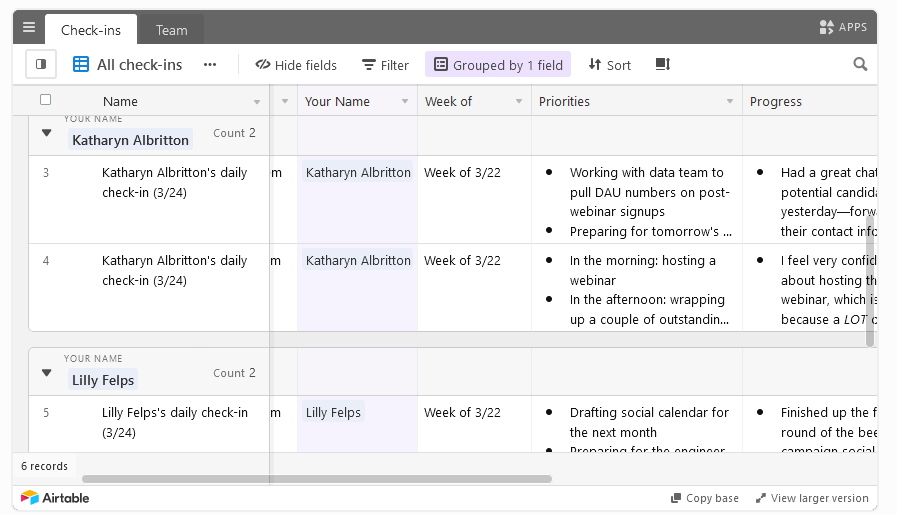
From there, make sure you add each team member to the “Team” table.
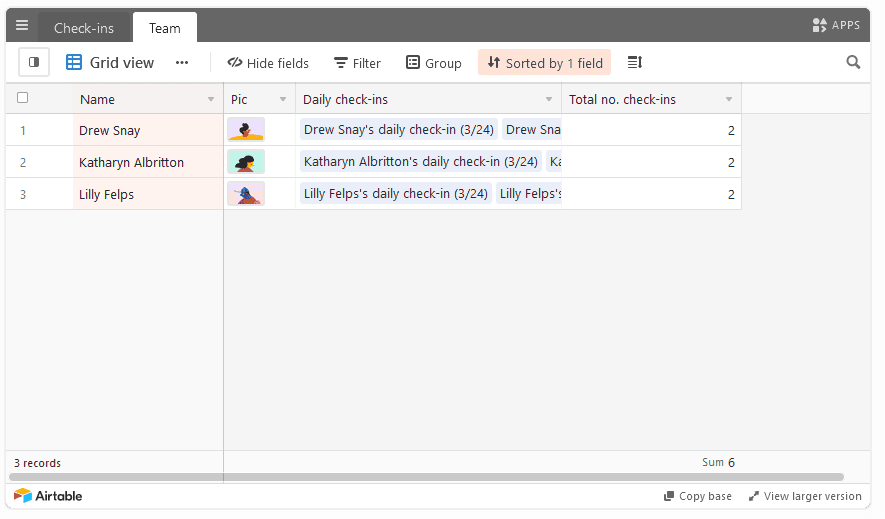
This template will already have fields set up for each person’s name, the time when their updates come in, as well as their priorities, progress, and problems for that particular check-in. If you want to keep your async scrum closer to the traditional daily scrum, you can rename these three fields to something like “yesterday,” “today,” and “blockers.”
Note that, in order to make sure your Airtable base syncs with other tools properly, you’ll need to add the Last Modified Time field.

Populating your base automatically with Unito
Now that your Airtable base is set up, let’s dive into how you can sync updates over automatically. With Unito, you can build in-depth flows between some of the market’s top work management tools, including Airtable, Trello, Asana, Jira, and more.
Here’s how you’d set up a flow between Airtable and Trello for this use case.
First, connect your tools.
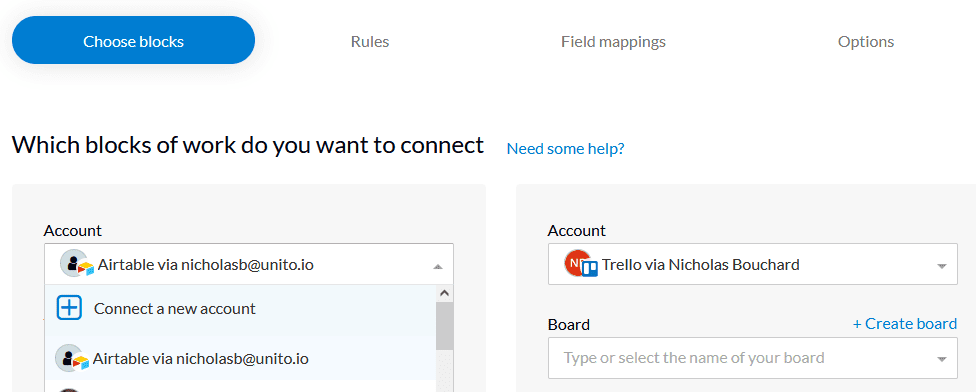
Then, you’ll pick the blocks of work you want to connect: your Airtable base and the Trello board where your team’s work happens.
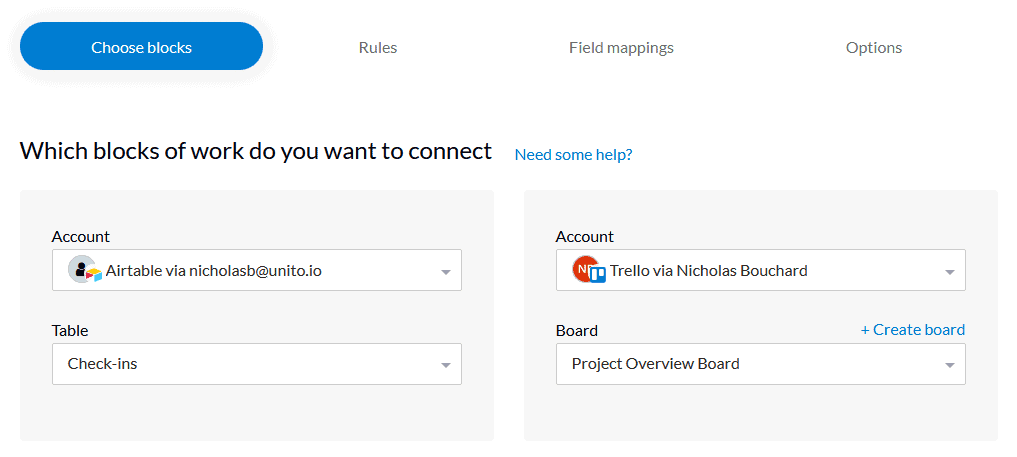
Now, you’ll want to set up a few rules to make sure you get the right information across. First, if you only want to sync Trello cards from specific team members, you’ll want to create a rule that looks for cards assigned to these people.
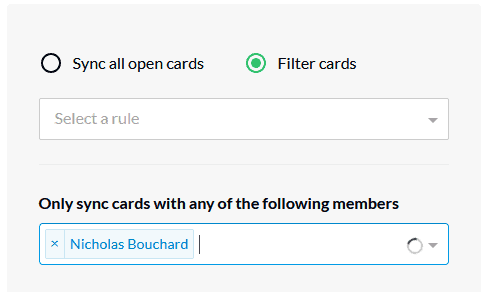
That way, only their cards will get synced over. After this, you’ll want to create a rule so only cards that need to be part of your daily scrum get synced to Airtable. This can easily be done by creating a “today” label in Trello, and creating a rule that looks for that label in Unito.

With your rules are set up, you’ll only sync the information you really want. It’s now time to set up your field mappings.
Unito maps most fields by default automatically. You can also customize your mappings to sync information from Trello to specific fields in Airtable, like due dates and descriptions. In this use case, it’s important to create text-type custom fields in Trello called Today, Yesterday, and Blockers. Then, you can map them to similar text fields in Airtable.
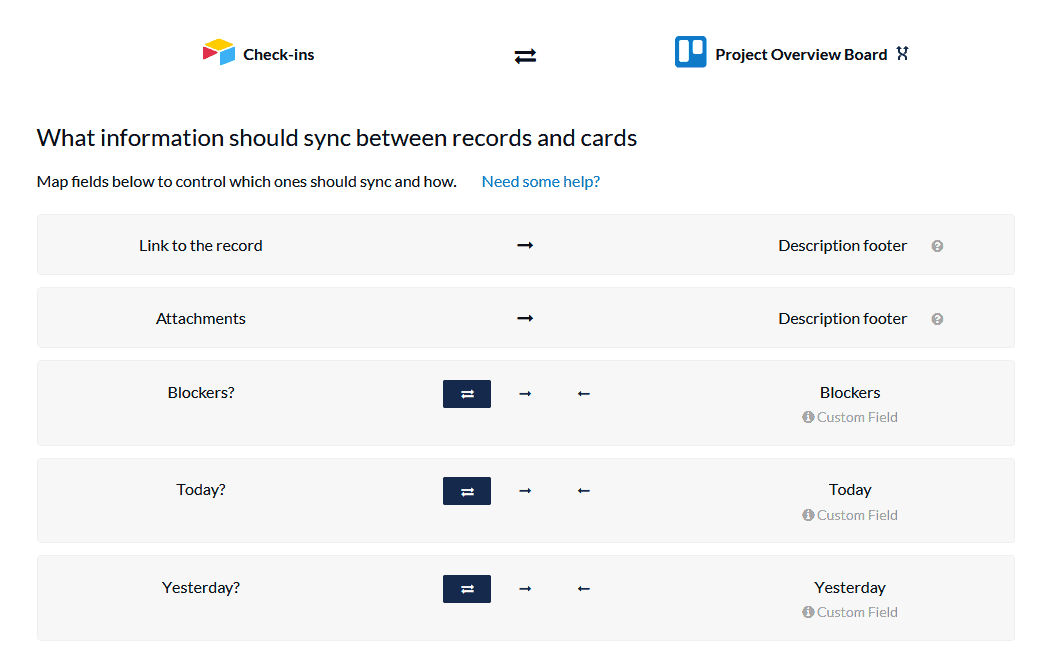
After this, you’re all set! It’s time to launch your flow. Now, information from Trello will be automatically synced over to Airtable, meaning that your team can keep everyone else in the loop with a fraction of the time and effort it would take otherwise. You can set up a similar flow for any number of Trello boards, or any of the other tools we integrate, giving everyone a complete picture of what’s going on.
Let’s sync up
The daily scrum is a powerful tool for keeping teams aligned. That said, it doesn’t scale very well, and it can take up a meeting slot that could instead go to some needed focus time. By making the switch to an asynchronous daily scrum, you’re giving your team their time back without sacrificing alignment. Add Airtable and Unito to this workflow, and now you can automate most of your daily scrum in just a few clicks. Talk about a time-saver.
